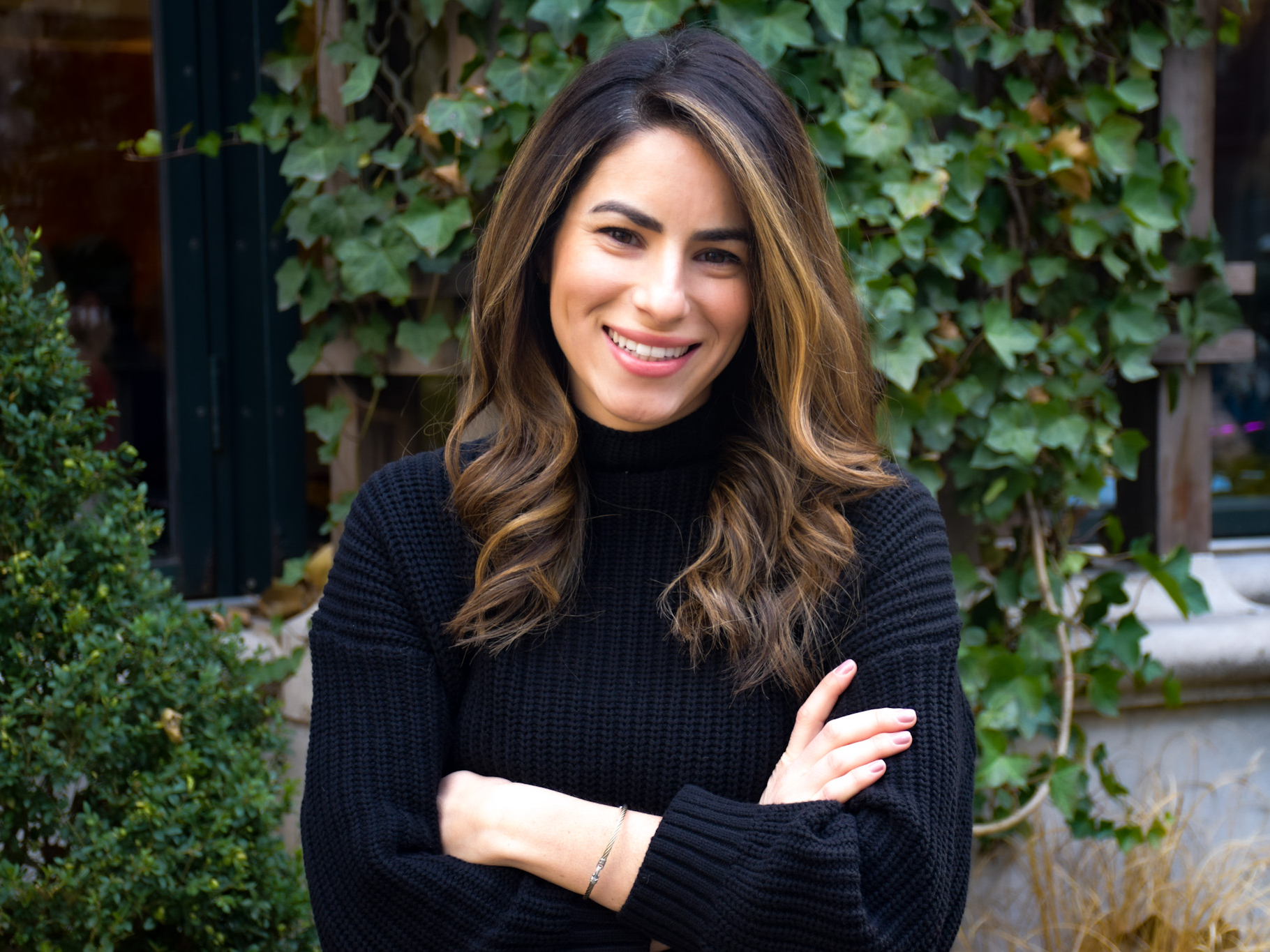- A New York-based therapist named Landis Bejar is the founder of AisleTalk, a boutique wedding therapy practice.
- Bejar helps engaged couples deal with the stress of planning a wedding, addressing everything from how to be firm with vendors to dealing with overbearing in-laws.
- She got the idea for the business after she helped settle an argument between her mother-in-law and sister-in-law that took place while they were wedding dress shopping.
- Bejar offers six different kinds of services, including premarital counseling and out-of-office visits.
- Visit Insider’s homepage for more stories.
Wedding therapy is a developing field of psychology.

Premarital counseling has existed for a long time, but psychologists have been expanding their services in recent years to offer more substantive wedding therapy.
Wedding therapy caters to the stressors that couples experience when they’re planning a wedding, addressing everything from arguments with in-laws to having important discussions with your partner about how you would want to raise future children.
Landis Bejar is a wedding therapist based in New York City.

“I couldn’t help but notice the unique family dynamics and stress that seems to be evoked during wedding planning as I watched my friends and family, and eventually myself go through the process,” Bejar told Insider of why she decided to get into the business of wedding therapy.
She founded her company AisleTalk in 2018.
Bejar founded AisleTalk after witnessing a wedding-induced argument between her mother-in-law and sister-in-law.

"As she was trying on dresses, her mom, my mother-in-law, made a comment indicating she did not think the fit of the dress was great," Bejar told Insider of the incident.
"This led to an argument between the two of them, which I was able to help smooth over, as it seemed to be a matter of miscommunication and heightened emotions."
"My mother-in-law joked that it was good they brought the therapist along for the trip and that I should consider being a bridal therapist," Bejar added. "I laughed along, but this is the moment that I really stopped to put these two things together: wedding stress and my career as a therapist. It made perfect sense."
Some clients meet with Bejar four months before their wedding, while others come to her as early as 15 months in advance.

She offers six different kinds of sessions for her clients, including family sessions, premarital counseling, and off-site sessions.
"Sometimes it can be helpful for a bride or groom to have their therapist join for a particular appointment," Bejar told Insider of off-site appointments.
"An example of this might be a client who is practicing communication and/or assertiveness skills and has trouble being clear about her opinion with vendors."
The average cost of a session with Bejar is $150. She had approximately 20 clients at the time Insider spoke with her.
Bejar said the differences between wedding therapy sessions and a typical session can be subtle.

"Sometimes it is impossible to tell the difference between a wedding therapy session and a non-wedding session," she said.
"For instance, someone might be coming in because they are stressed about their wedding, but the content of the session could be comprised of discussing current and past family dynamics, past hurts and traumas that are being activated by something current, or ways to cope with anxiety or stress management," Bejar told Insider of some of her clients.
Some of her sessions are more overtly wedding oriented, addressing issues like dealing with overbearing in-laws or negotiating religious differences during the ceremony.
The most common issues her clients bring up are problems with their families or partners.

"This is quite typical during wedding planning because it comes from one, or often several, misalignments in expectations and difficulty identifying those and communicating them effectively," Bejar said.
"This occurs during disagreements about the guest list, traditional versus modern approaches, budget, etc."
"It can also come up when couples are misaligned on the value they each are placing on certain aspects of the wedding or navigating the pressure of pleasing your 'family of origin' versus your new 'family of creation' with the fiancé," she added.
She thinks a wedding therapist can offer a different kind of support than others involved in the event, such as a planner or a maid of honor.

"Some people have very minimal stress, and a maid of honor or planner is able to respond to that easily because it falls within their responsibilities," Bejar told Insider.
But she also added that "wedding planners have 10 million things to do to make your day incredible," so supporting a bride or groom emotionally can add too much to their plate.
"Maid of honors want to be excited for you, plan your bachelorette, make sure no one spills coffee on your dress, and listen to you vent, but only up to a certain point. She also has a job and a life and maybe a partner and her own stuff going on," Bejar added.
A wedding therapist, on the other hand, is solely dedicated to your emotional well-being.
Bejar said that the more wedding planners and maid of honors she talks to about AisleTalk, the more she hears that her services are "so needed."
Bejar typically doesn't attend her clients' weddings.

"The goal of the work is to help clients build skills and insights that help them to live a fuller, more authentic life outside of our sessions," Bejar said.
"So it is very rare that, by the time clients reach their wedding date, they need me there to help them with the day."
In addition, her clients might not want her guests to know they had a therapist, and her presence might remind them of the things they were stressed about, rather than alleviating those emotions.
Bejar said about a third of her clients continue to work with her after they get married.

"Therapy is an evolving space and a sanctuary for many people that can grow with you through life stages and transitions," Bejar told Insider.
"Some find that it becomes a part of their regular self-care routine and want to work on new goals once the wedding is over. Others feel content to wrap up at the conclusion of the wedding."
"Some of those might even come back a few months down the road if new obstacles arise and they don't want to 'start over' with a new therapist," she added.
"I love giving couples a space to challenge the myth that we 'should be' anything," Bejar said of her work.

"The couples who come in to see me are usually frustrated with themselves when they come in," Bejar said.
She often hears the question: "What's wrong with us that we haven't even gotten married yet and we're stressed? This should be the happiest time in our lives."
"Couples sessions offer a neutral space where I can 'choreograph' opportunities to truly hear and support one another, as well as normalize the stress and contextualize it," Bejar added.
You can find out more about AisleTalk here.
- Read more:
- A professional bridesmaid has been in over 150 weddings in just 4 years
- How to prevent wedding-planning stress from ruining the big day, according to a therapist devoted to anxious brides
- What the average wedding costs in the 25 biggest cities across the US
- A couples therapist says most people don't understand the real reason they've sought help - and it makes things hard to fix

